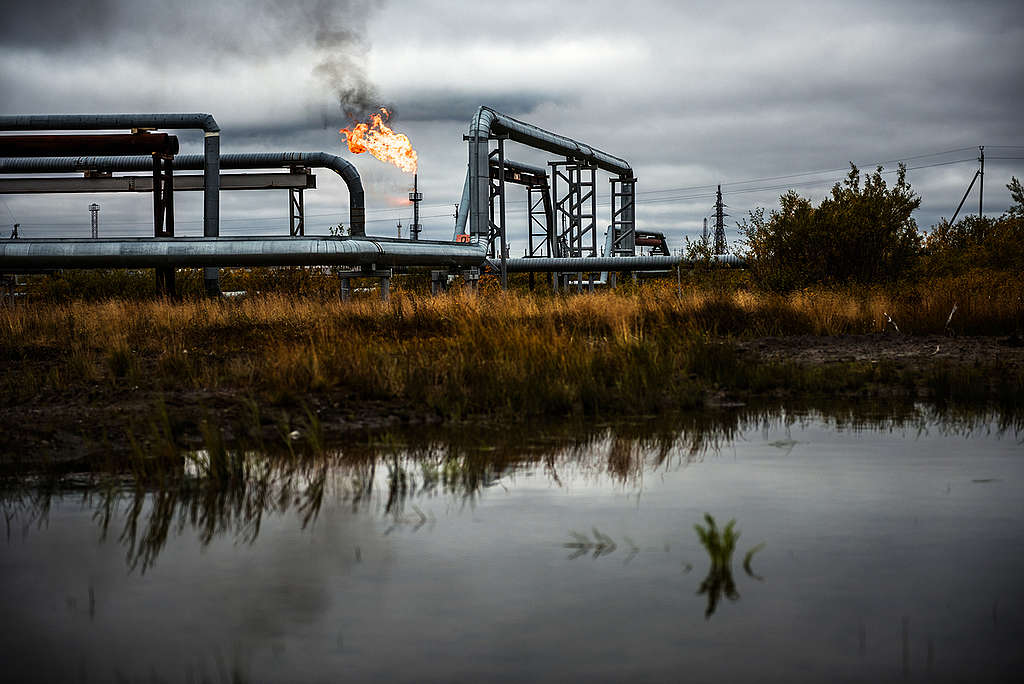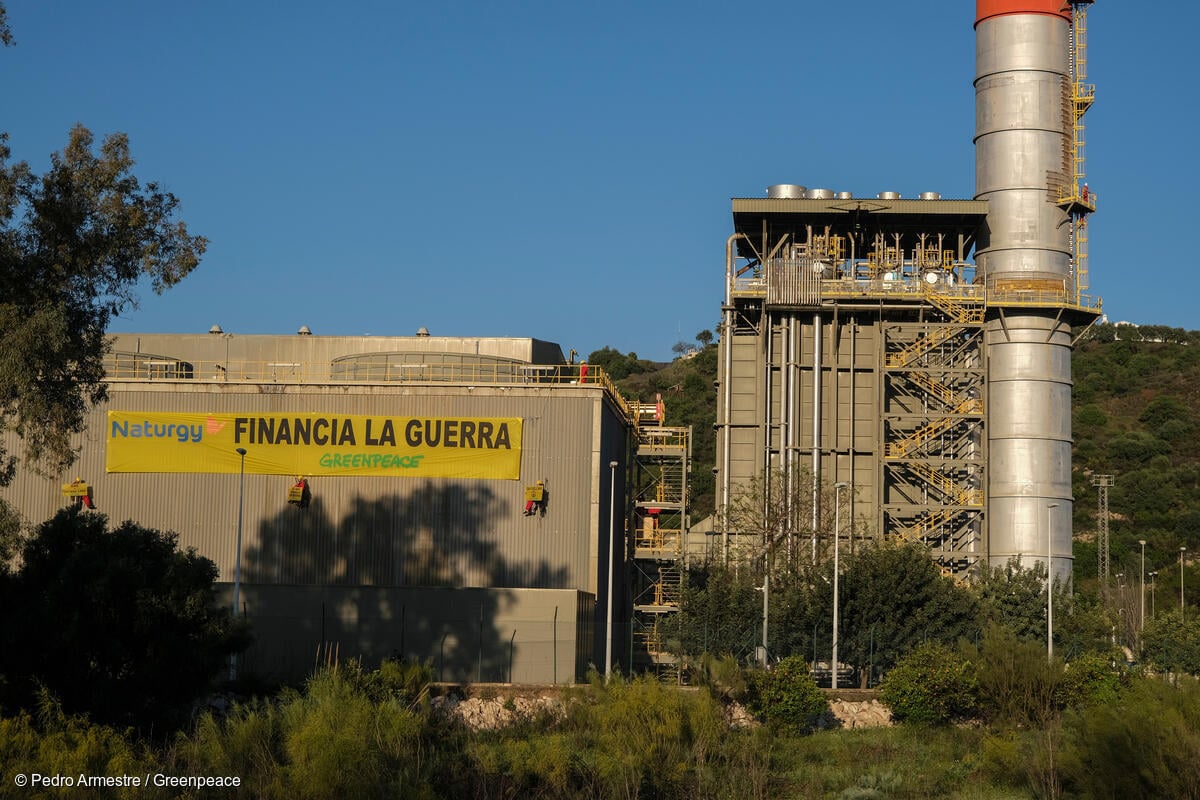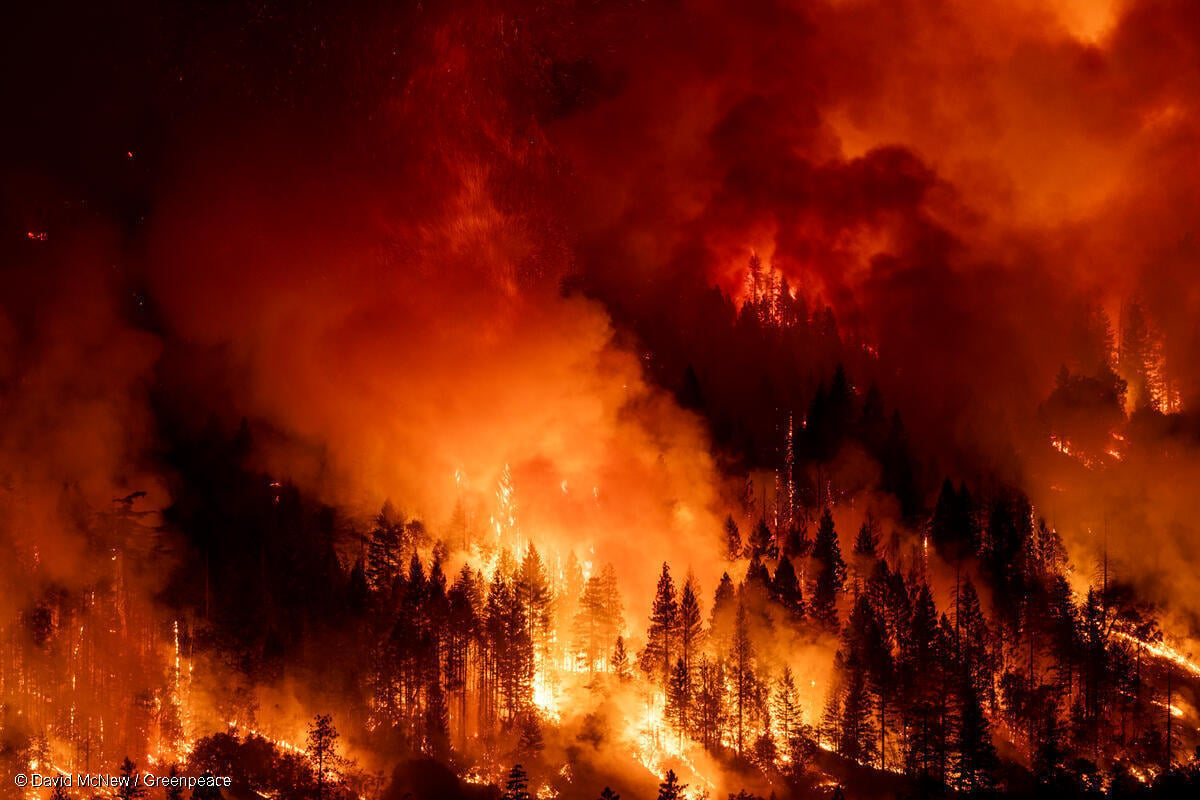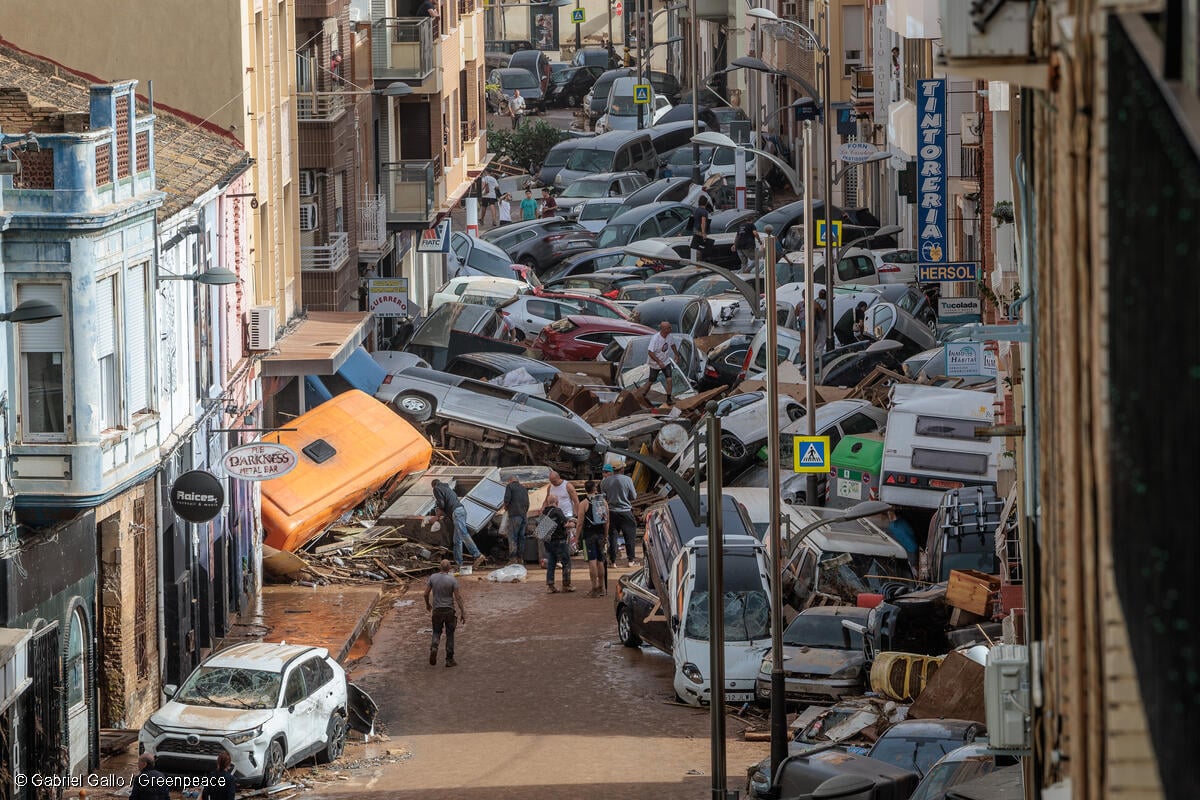
Brussels – The EU Commission’s proposed update of the EU’s gas market rules fails to acknowledge the need to phase out gas in order to tackle the climate crisis, warned Greenpeace.
The proposals, to be released today, focus on the creation of a European market for hydrogen and so-called “low carbon” or “decarbonised gases”. Currently, over 95% of hydrogen is made from fossil gas, and recent studies have found that this could have a worse climate impact than the use of fossil gas directly.
Greenpeace and other environmental groups have called on the European Commission to revise the gas plan to include a phase-out of fossil gas by 2035 at the latest, and a clear transition to heating with renewable energy and better insulation of buildings.
Greenpeace EU climate and energy campaigner Silvia Pastorelli said: “The EU Commission is debating how fast to sail Europe’s heating systems into the rocks, instead of steering us clear completely with a move to renewable heating. Fiddling with blends still locks the EU into dependence on climate-wrecking gas that’s also sending people’s energy bills skyrocketing. Europe’s brain-power and money should instead be backing renewable heating and retrofitting that would give people cosier homes, lower bills and a safer climate.”
Since 2019, fossil gas has been responsible for more greenhouse gas emissions in the EU than coal. The residential sector is the largest consumer of fossil gas in the EU, using 40%, almost entirely for heating. Recent studies have demonstrated that hydrogen is neither the most efficient nor the most cost-effective solution for heating, and would lead to blending hydrogen with fossil gas, locking Europe into fossil fuel use for even longer.
Energy infrastructure rules
Earlier this morning, negotiators from the European Parliament and EU national governments reached an agreement on the Trans-European Energy Networks regulation (TEN-E), which sets the rules for selection and planning of energy infrastructure projects and how they can receive EU funding. The current planning and funding process has been highly criticised by NGOs as allowing a conflict of interest due to the influential role granted to fossil gas companies.
While the compromise reached by negotiators has made the decision-making process more balanced by adding independent expertise, it still maintains a key role for gas network companies in deciding what energy projects should receive public support.
The updated rules still allow for subsidies to fossil gas projects if the gas is blended with hydrogen and will convert to 100% hydrogen by 2030, and continue to grant preferential treatment to fossil gas infrastructure in the form of faster permit procedures. The deal reached by negotiators also allows special derogations to keep subsidising the mega gas pipelines EastMed and Melita.
Contacts:
Silvia Pastorelli, Greenpeace EU climate & energy campaigner: +32 496 12 20 94, [email protected]
Greenpeace EU press desk: +32 (0)2 274 1911, [email protected]
***
For breaking news and comment on EU affairs: www.twitter.com/GreenpeaceEU
Greenpeace is an independent global campaigning network that acts to change attitudes and behaviour, to protect and conserve the environment and to promote peace. We do not accept donations from governments, the EU, businesses or political parties. Greenpeace has over three million supporters, and 26 independent national and regional organisations with offices in more than 55 countries.
EU Transparency Register: 9832909575-41



